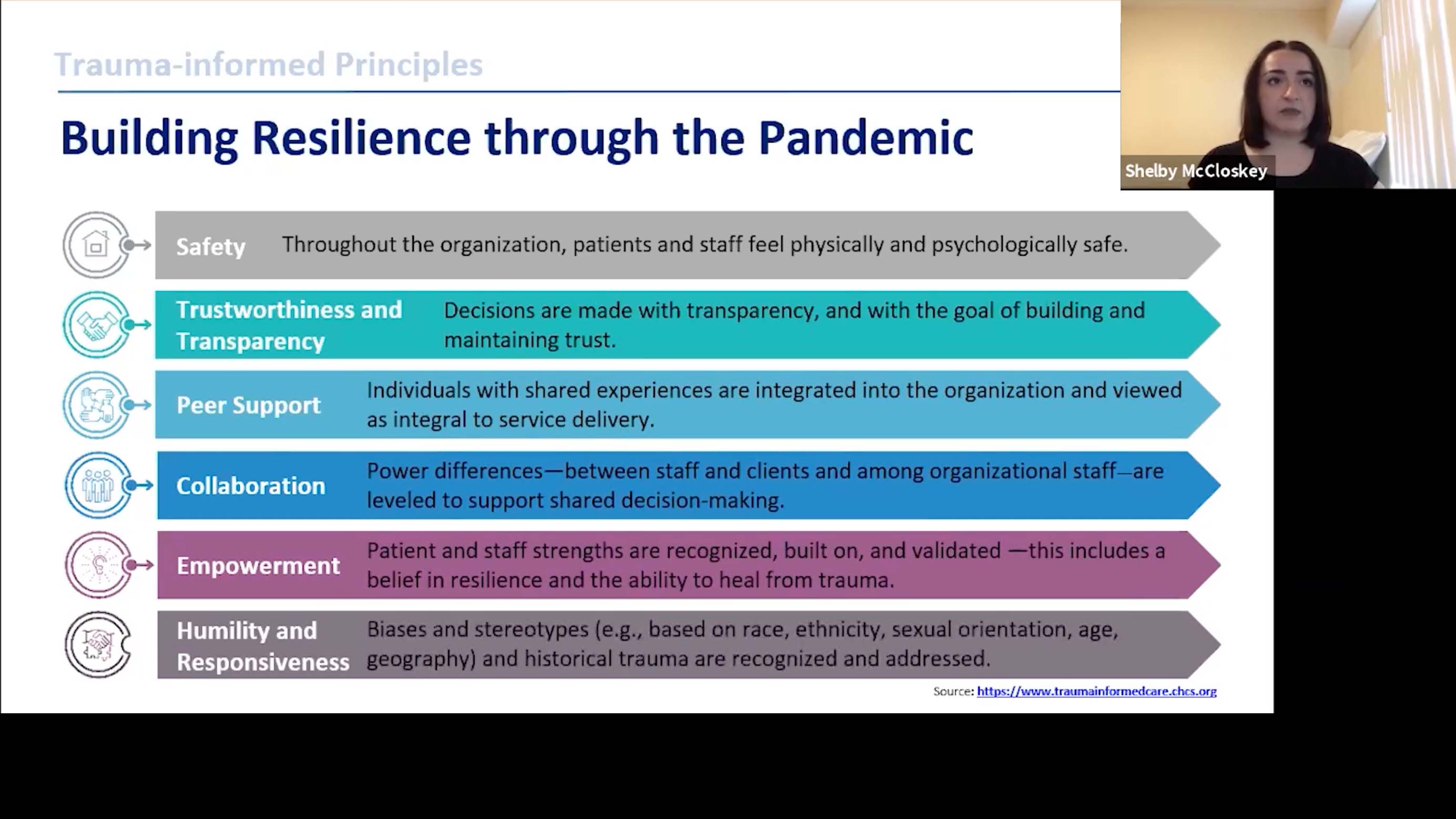Violence prevention research provides opportunity for WVU student, public health advocates

The #MeToo movement has inspired millions of individuals to share their stories of surviving sexual violence. After discovering the grassroots effort on social media, it also inspired one West Virginia University student to find her passion for helping others through violence prevention.
Shelby McCloskey’s journey to the School of Public Health began when she was in high school, but she didn’t know it at the time.
“I personally never knew what direction I wanted to take in life until my senior year,” she said. “I remember checking Twitter one day and I saw ‘#MeToo’ trending, and when I saw why, I was disheartened. I decided that day that I wanted to be part of the solution to sexual violence in any capacity.”
McCloskey wanted to learn more about the movement and found that sexual violence affects millions of people each year in the United States alone. According to the Centers for Disease Control and Prevention, more than 1 in 3 women and 1 in 4 men have experienced sexual violence involving physical contact during their lifetimes, statistics that are underestimated due to many cases going unreported for a number of reasons. At the time, McCloskey thought the only way to make a difference was through a clinical setting. So, she started her college career with the intent of studying nursing.
“When I talked to my academic advisor about my goals, I was referred to the School of Public Health,” she said of starting a new path. “Public health allows me to operate on a scale that looks at a wider community approach rather than an individual clinical approach. I have learned so much that I am able to apply with the population I want to help, and I still have so much more to learn.”
Once she found her place in the School of Public Health, McCloskey began her undergraduate research experience through WVU’s Summer Undergraduate Research Experience (SURE) program. The program paired her with mentor Danielle Davidov, PhD, to explore the neurobiology of trauma and implications for trauma-informed care. Davidov, an associate professor in the Department of Social & Behavioral Sciences, then invited McCloskey to continue working with her on additional research projects.

The pair’s continued work led to an opportunity for McCloskey to present their work as part of a Mid-Atlantic Regional Public Health Training Center presentation on domestic violence during the current COVID-19 pandemic, which has had a rapid and significant impact on victims and those who support them.
“Not only has domestic violence and intimate partner violence increased, but the ways in which victims receive help has had to change rapidly as well. For example, the pandemic and social distancing and shelter-in-place measures have impacted victims’ ability to receive services in person and stay in shelters,” explained Davidov.
“We compiled a literature review on domestic violence and how abusers have used the pandemic to their advantage. We also discussed trends and possible barriers for those who want reach out for help and trauma-informed practices for those who treat and interact with survivors,” said McCloskey.
“This was her first presentation outside of the classroom and she absolutely nailed it. She was poised, well-informed and professional and she fielded questions from the attendees with great skill,” said Davidov of the workshop that included professionals from across the region. “She has a very promising future in public health.”
After she completes the B.S. in Public Health program, McCloskey plans to pursue a master’s degree focusing in the area of violence prevention.
“I want to hone my skills to prepare for the professional work force. I would like to work in a hospital setting and partner with sexual assault nursing examiners to help build up programs around the country to help improve the care for sexual assault victims,” she said.
“Students who would like to conduct research should network with potential mentors who share similar interests. I was beyond nervous to introduce myself to Dr. Davidov, but by connecting with her I have been opened up to research possibilities and career paths I was unaware of.”
Pictured at top: Shelby McCloskey
-WVU-
jdw/09/24/21
CONTACT: Nikky Luna, Director of Marketing and Communications
WVU School of Public Health
304.293.1699